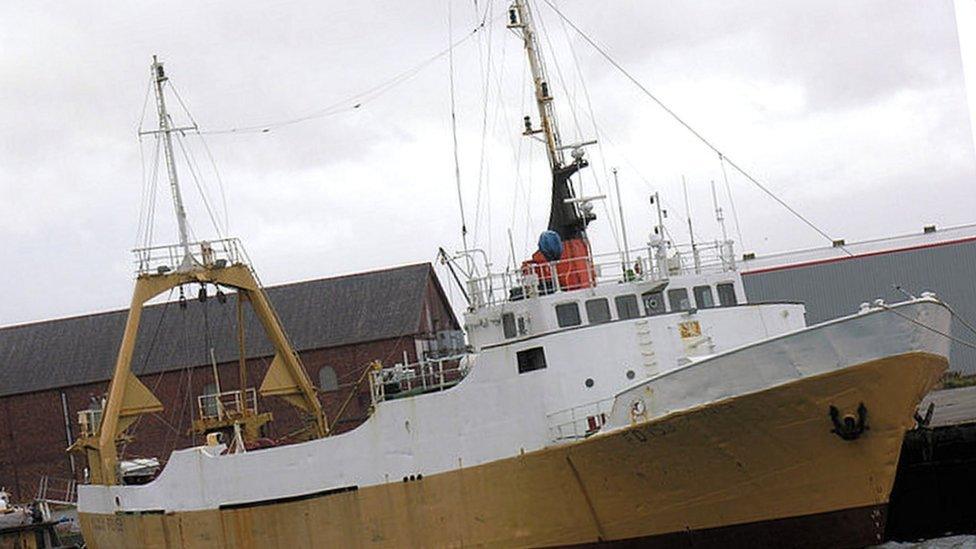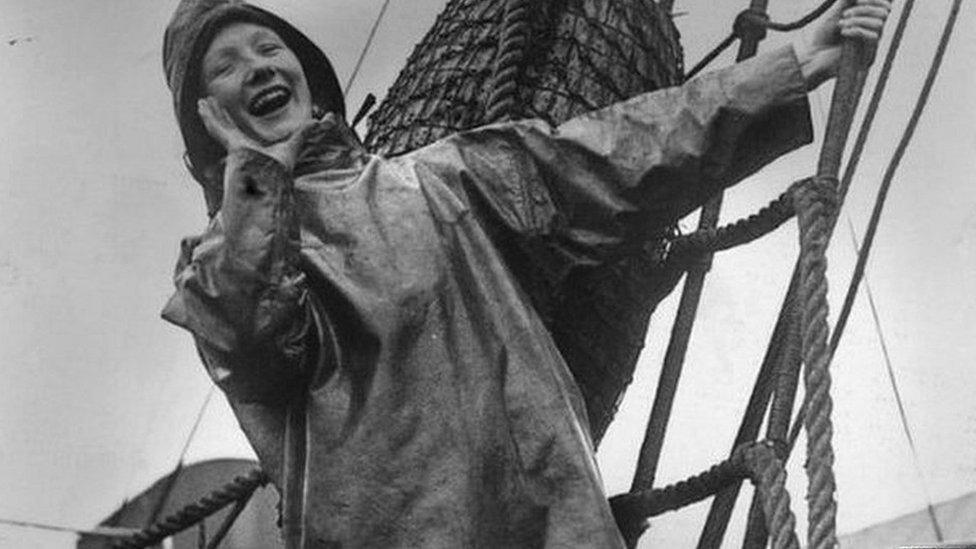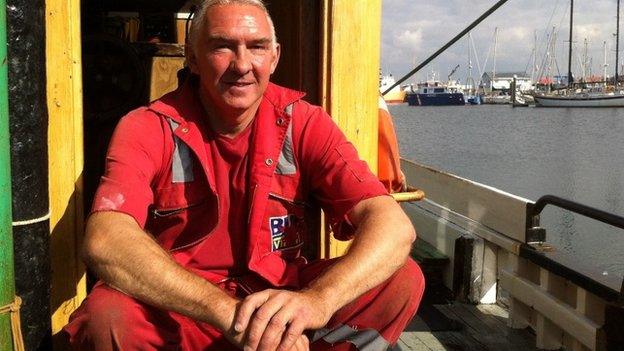Fleetwood heritage trawler Jacinta to be scrapped
- Published

The Jacinta was the last deep water trawler to sail out of Fleetwood
A deep water trawler which was later transformed into a floating museum is to be scrapped after falling into disrepair.
Jacinta was the last Arctic trawler to land fish at Fleetwood and had been berthed at the port since 1995.
Trustees responsible for the vessel, which launched in 1972, said it was "no longer viable" to maintain it.
David Pearce, chairman of the Jacinta Charitable Trust, said: "It's very sad. We've come to the end of the road."
Leaks have been discovered in the trawler and the Maritime and Coastguard Agency decided it was no longer seaworthy for a journey to the Cammell Laird yard in Birkenhead to undergo repairs.

Factfile: Jacinta
Launched in 1972, Jacinta was a stern-fishing trawler which saw fish hauled in at the back rather than over the side
It set a record for a Fleetwood-based trawler with a catch of 188 tonnes on a 19-day voyage to the Icelandic fishing grounds
Sailing out of Hull in the 1990s, it was on course to be the first British trawler to land £2m worth fish in a full year before a major breakdown
In 1995 it was sold for £1 to heritage enthusiasts
From 2003 to 2012 it visited maritime events and festivals around the UK before becoming a heritage centre in Fleetwood

A third of Fleetwood's population were employed in the fishing industry during its heyday
Mr Pearce said: "We have employed professional divers and highly skilled craftsmen on two occasions, and they have not been able to achieve the temporary repairs.
"They have revealed further damage on the port side."
Mr Pearce said the trust had also been set back by the deaths of two "key trustees" over the past year.
Parts of the vessel are being donated to Fleetwood Museum.
About 120 trawlers operated out of Fleetwood in the 1950s and 60s, with the industry employing some 11,000 people.
However, the so-called "cod wars" of the 1970s, when Iceland successfully imposed a 200-mile limit restricting how much fish could be caught in its waters, ultimately proved terminal for the port's fishing tradition.
- Published21 July 2015
